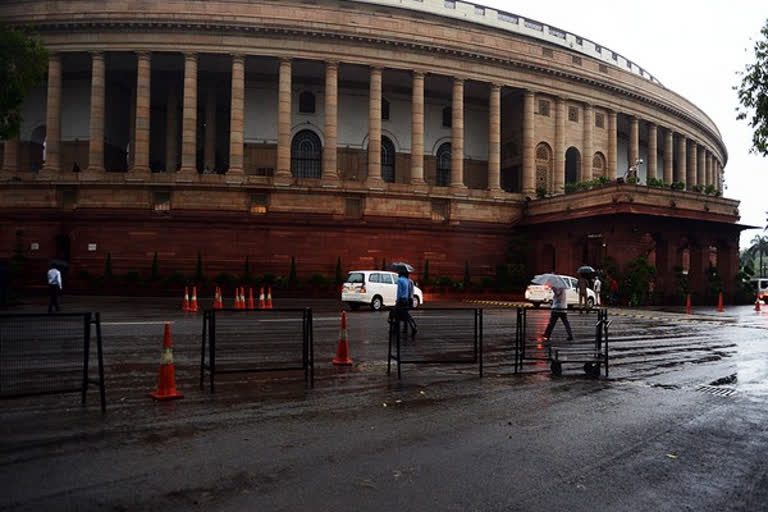New Delhi: Being aware of the perennial flood problem of several States across India, a Parliamentary committee on water resources has suggested to the government an integrated river basin management plan to solve the issue.
"An integrated river basin management plan is the need of the hour which requires collective involvement of all major flood-prone Indian States and also the neighbouring counties where the trans-border rivers originate so as to find a lasting solution to the problem," the Parliamentary committee on water resources said in its 17th report submitted in the Lok Sabha recently.
India faces floods almost every year, in varying degrees of magnitude. The frequent occurrence of floods can be attributed to various factors like the wide variation in rainfall both in time and space with frequent departure from the normal patterns, inadequate carrying capacities of rivers, river bank erosion, silting of river beds, landslides, poor natural drainage, snow melts and glacial lake outburst.
The problem of floods gets compounded due to the interstate and international extent of various rivers. As per the National Commission on Floods, the total area liable to flood in the country is 40 million hectares. The total damage to crops, houses and public utilities from 1953 to 2018 has been estimated to be about Rs 400,097 crores.
Also read: TN Water Resources Department begins inspection of dams
The total human lives lost during this period have been assessed to be around 109,374 and around over 61 lakh cattle have also perished. "The high damage caused by floods every year are indicative of poor planning, failure of the flood control policy, inadequate preparedness and ineffective disaster management," the committee headed by Lok Sabha MP Dr Sanjay Jaiswal said.
Since floods create havoc every year, bringing untold misery to people apart from causing economic suffering, the need of the hour is that both the central and state governments should work out a lasting solution that goes beyond piecemeal measures such as the building of embankments, the committee said.
In its action taken report, the water resource ministry said that there are plans to utilize the water from common rivers of neighbouring States for mutual benefit including flood control. "As far as the issue of flood management in respect of trans boundary rivers flowing from neighbouring countries is concerned, regular deliberations are being held through a bilateral mechanism," the committee said in its report.
Officials from the water resource ministry said that the 'Jal Shakti Abhiyan' of the central government has also laid emphasis on the need for revival, rejuvenation and conservation of traditional water bodies and wetlands which besides conserving water also aid in flood control.
Also read: Harike water poisoned: Advisory issued by Water Resources Department
The committee said that as per the National Perspective Plan (NPP) of the Ministry, for development through inter-basin transfer from water surplus basins a water deficit basins, the National Water Development Agency (NWDA) has identified 30 links (16 under Peninsular Component and 14 under Himalayan Component).
"There would be considerable benefits on account of implementation of interlinking of rivers in terms of irrigation, power generation, apart from benefits of flood control, drought mitigation, navigation, water supply, fisheries and pollution control etc," the report said. Talking to this correspondent, Lok Sabha MP from Assam, Naba Sarania said that the central government must take strong steps to control the flood problem in the State.
"Almost every year, we face floods that cause severe damage across the states. It's not only human habitation that gets destroyed, but lakhs of hectares of farming land also get eroded," said Sarania. In the current monsoon, several states across India including Assam, Bihar, Himachal Pradesh, Madhya Pradesh, Maharashtra, and Kerala have been severely affected.



